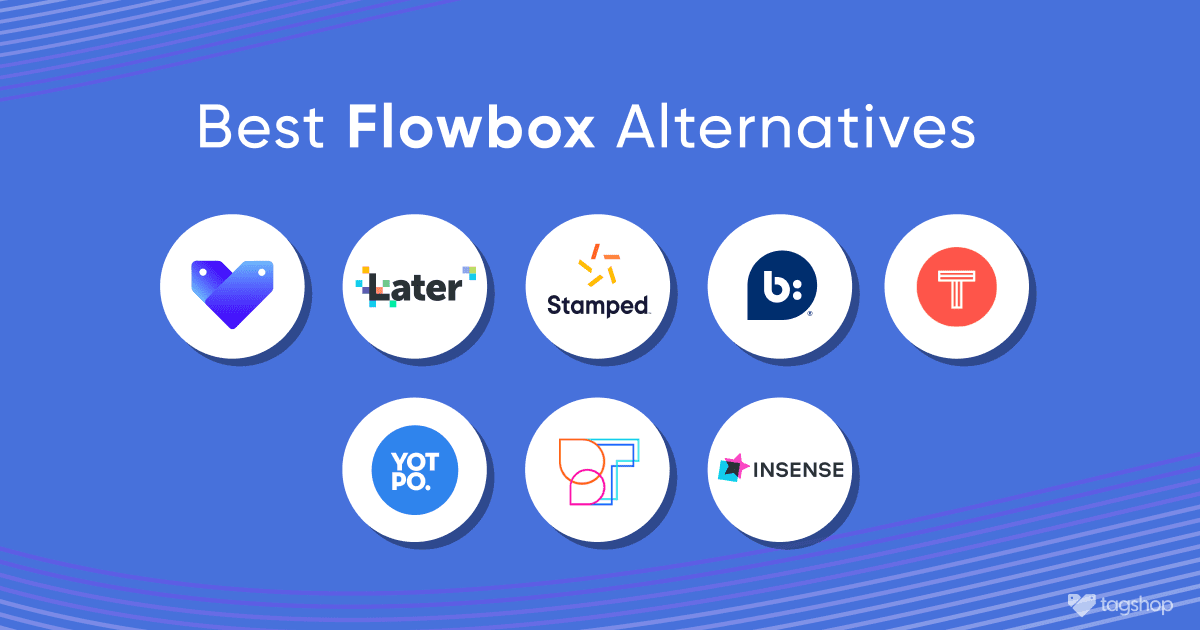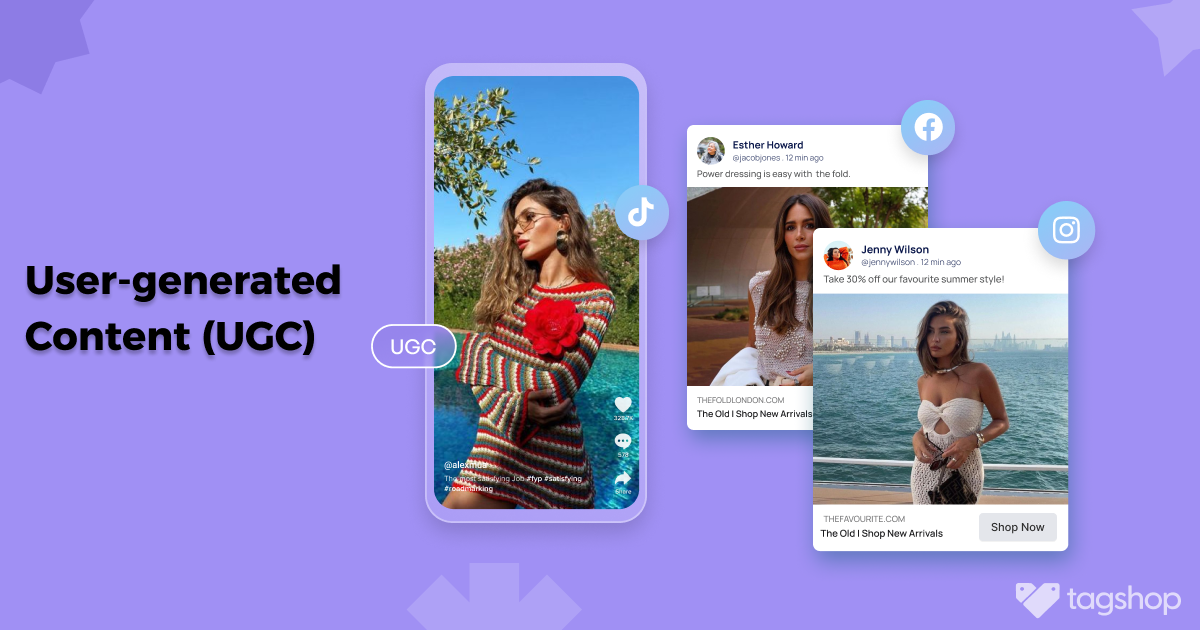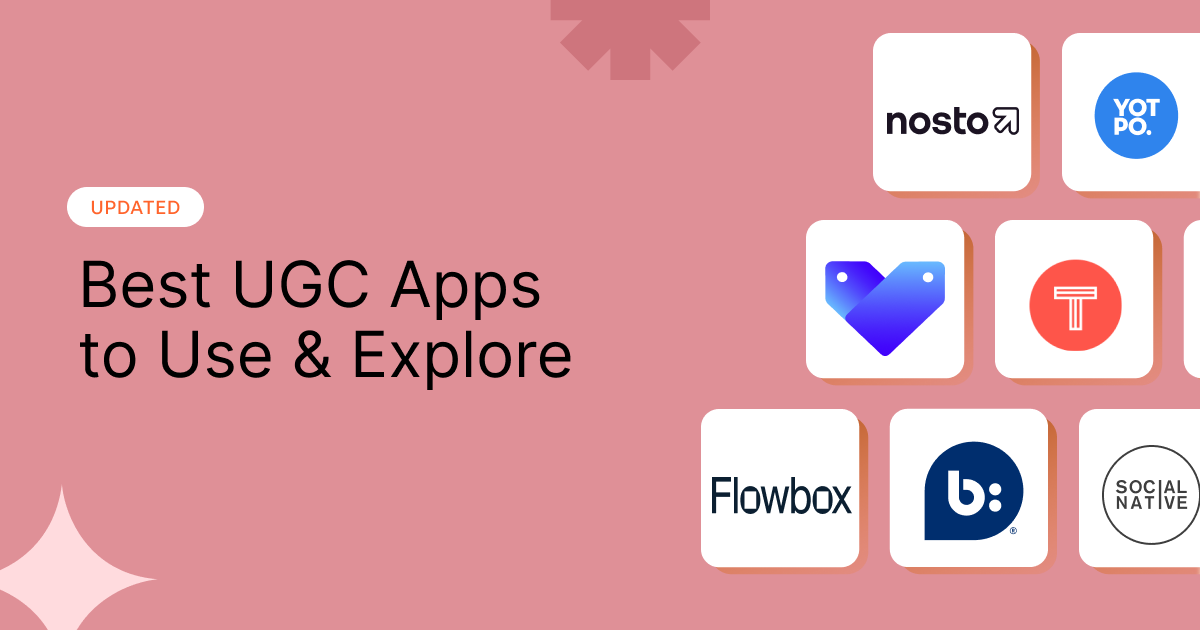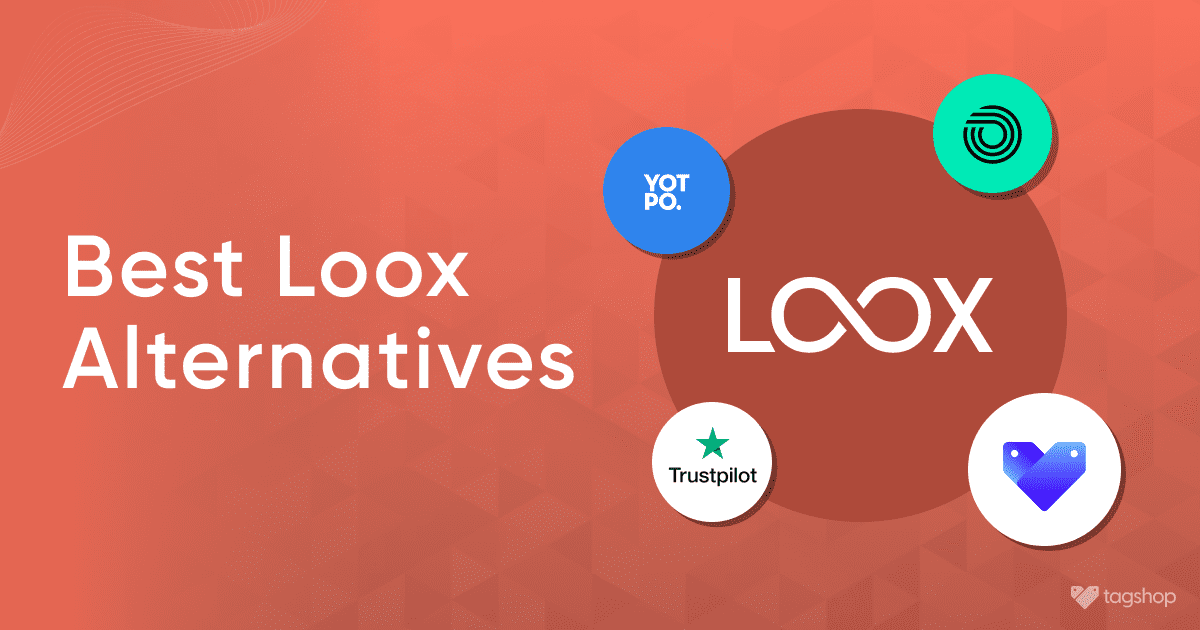Top 10 Flowbox Alternative Tools
Are you looking for tools for Flowbox Alternative that can help you showcase your valuable social user-generated content on your website?
Brands today understand the significance of using social media to build a strong online presence. One of the key ways to do that is by leveraging the power of user-generated content (UGC) to showcase their products or services.
However, the challenge lies in finding the right tool that can help you seamlessly integrate this UGC onto your website. While Flowbox is popular, several alternatives offer unique features and functionalities.
In this blog, we will explore the top 10 alternative tools for Flowbox that can help you make the most out of your social UGC and take your website to the next level.
Why Should Brands Consider Tools For Flowbox Alternative?
Flowbox is undoubtedly a popular platform many brands use to manage their social media presence. However, it’s important to note that not every tool works for every brand, and what works for one may not work for another. Therefore, it’s always a good practice for brands to explore Flowbox alternative tools to determine which works best for their specific needs.
For instance, some brands may find that other social media management platforms offer better features that align with their goals. They may also find that certain tools are more user-friendly, offer better customization options, or provide more in-depth analytics.
Alternatively, some brands may be looking for a specific feature or function that isn’t available in Flowbox but is available in one of the alternative tools.
There are various brilliant tools out there; read below to find out more about these tools.
Top 10 Best Flowbox Alternatives
1. Tagshop
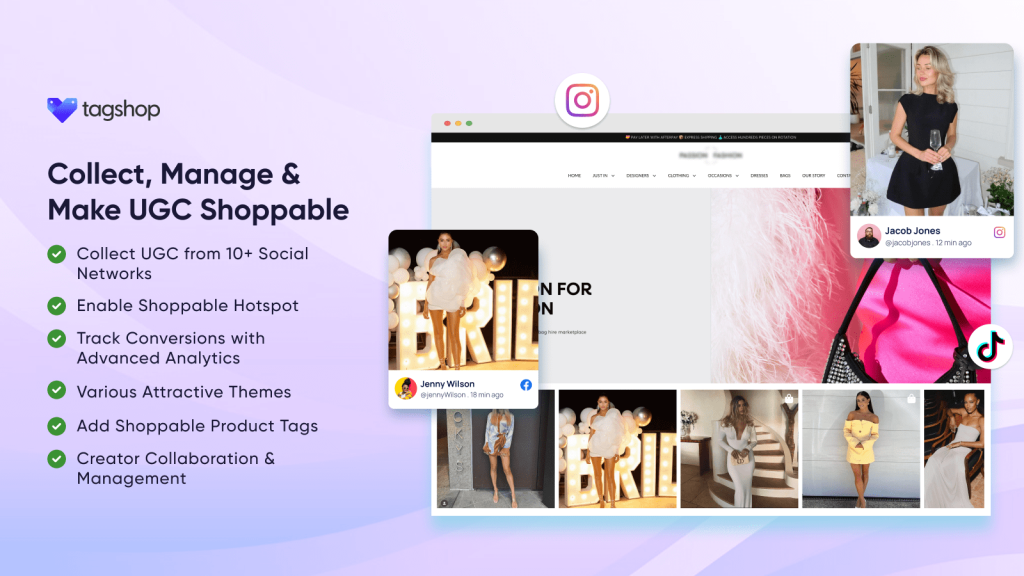
Tagshop is an incredible social commerce platform that enables businesses to leverage the power of UGC by turning it into shoppable content across various marketing touchpoints.
Tagshop allows users to boost conversions with social commerce solutions like Shoppable galleries, visual UGC, customer reviews, & social shopping. With Tagshop, businesses can enable customers to purchase products more seamlessly.
The platform also offers features like analytics to track the performance of social media campaigns, customizable themes, and content moderation. Tagshop is an excellent choice for businesses that want to streamline the social shopping experience.
Pros:
- Compatibility with all major e-commerce platforms.
- Collect visual UGC, videos, and reviews from 15+ sources
- Advance conversions tracking
- Attractive themes and layouts
- Collect customer videos via QR codes
- It does not impact site speed.
- AI-powered content recommendation.
- Compatibility with all major e-commerce platforms.
Cons:
- Video live-streaming is not available
Features:
Advanced AI-Filters
Get Ai recommandation for each post
Easily Get UGC Rights
Send personalized request for ugc rights
Enable SnapUp
Collect social content directly from customers
Find content creator
Save time and get in touch with real content creators
Product Catalogue Management
Manage all products from one platform
Google Analytics & UTM Tracking
Setup Google analytics and track all conversions
What People Say About Tagshop
We have been using Tagshop Shopify app for our company’s e-commerce business. The tool is brilliant, especially for managing Instagram content and making it shoppable.
Shoppable galleries have enhances our customer experience. They provide a visually appealing and interactive way for customers to explore our products. Tagshop is a must have tool.
2. Later
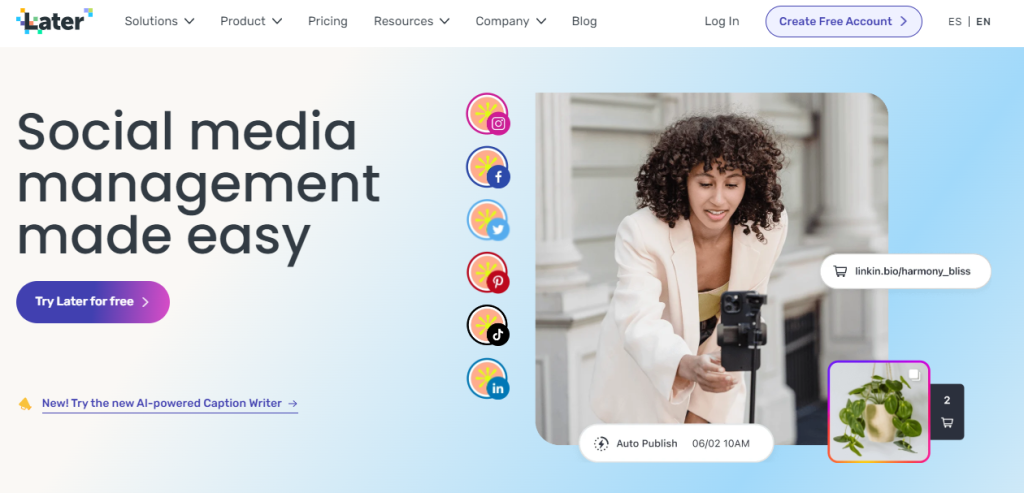
Later is a social media management platform that helps businesses plan and schedule their social media content. It offers a range of features like a content calendar, visual planner, and analytics that can be used to manage social media accounts across multiple channels.
Later, it is user-friendly and has a simple interface, making it easy for businesses to manage their social media presence and boost growth in sales through social content.
Later is a great alternative for businesses seeking an easy-to-use social media management tool.
Pros:
- Post Scheduling
- Time-Saving
Cons:
- High Pricing
- Lack of Analytics
- Limited Functionality
Pricing – $15/month
3. Stamped
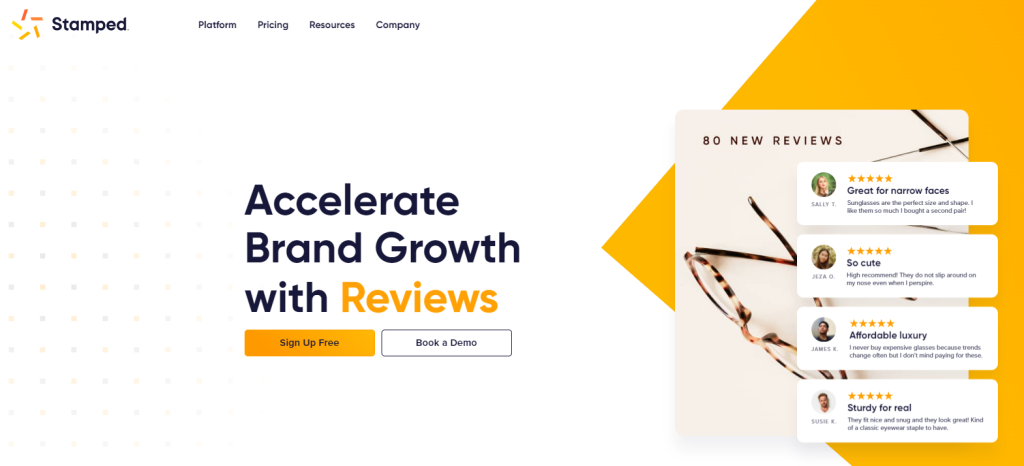
Stamped is an excellent reviews and rating platform that helps eCommerce businesses increase customer trust and loyalty. It offers a range of features like reviews, ratings, and user-generated content that can boost conversions and build brand awareness.
Stamped integrates with various eCommerce and social commerce platforms making it easy for businesses to manage their social proof marketing across different channels.
While it may differ from Flowbox in certain ways, Stamped.io is a great alternative for businesses looking to improve their social proof marketing.
Pros:
- It’s easy to use and is intuitive
- Good customer support
Cons:
- No live chat or video call support
- Very poor email support
Pricing – $49/month
4. Bazaarvoice
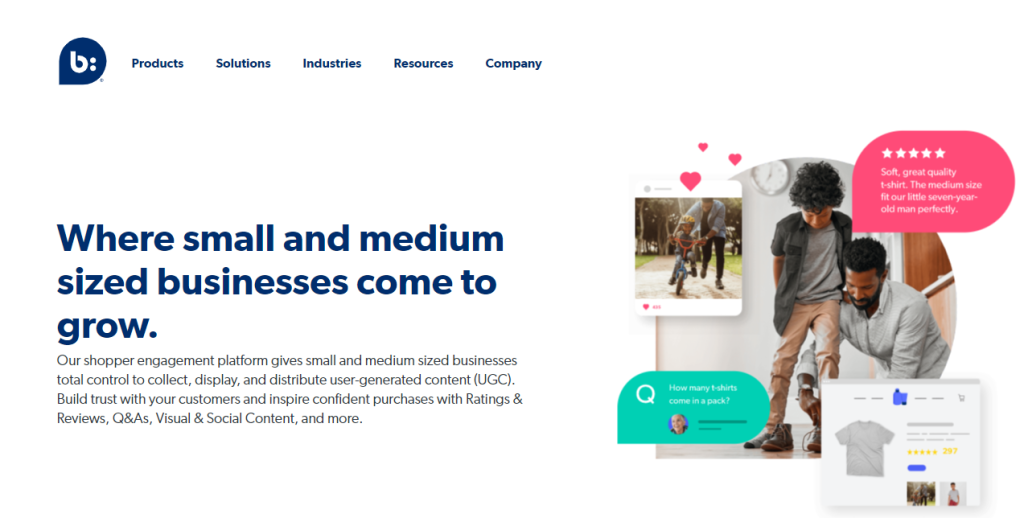
Bazaarvoice is an alternative tool to Flowbox and is a UGC platform that allows brands to leverage customer feedback and ratings, manage UGC, and help businesses collect and showcase users’ content across marketing channels.
With Bazaarvoice, businesses can engage with customers, respond to reviews, and measure the impact of social media campaigns on customer sentiment.
The platform also offers analytics to track social media campaign performance and identify improvement areas. Bazaarvoice can benefit businesses that want to build customer trust and loyalty.
Pros:
- Review Management
- Good customer Service
Cons:
- Complicated to set up
- High Pricing
Pricing – N/A
5. Yotpo
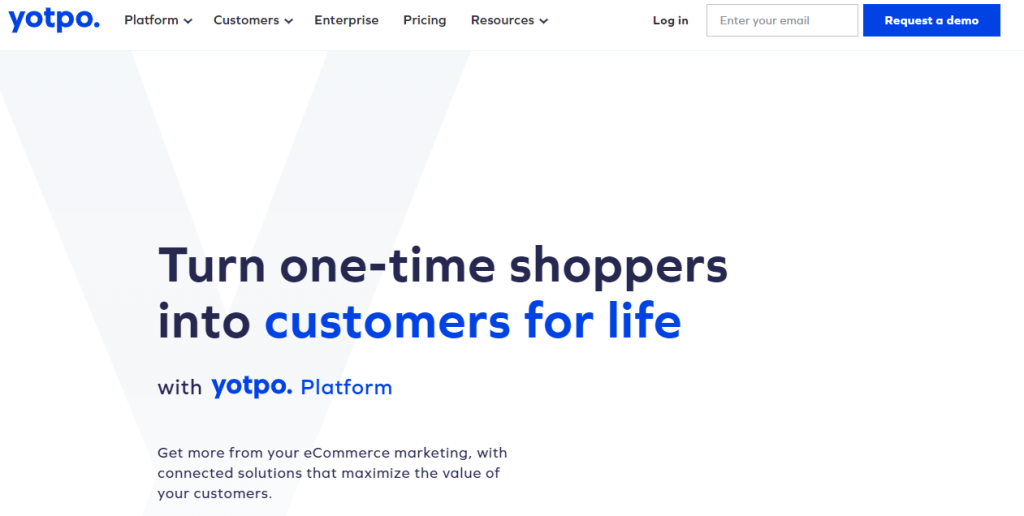
Yotpo is an eCommerce platform that helps businesses collect and curate user-generated content across social media channels.
With Yotpo, businesses can showcase customer photos and reviews, create shoppable Instagram posts, and measure the efficacy of social media campaigns on customer engagement.
The platform also offers plans that suit customers and their various requirements, such as analytics to track the performance of social media campaigns, customizable features, and more. Yotpo is an excellent Flowbox alternative to businesses using it for similar features.
Pros:
- Easy Integration
- Good customer Support
Cons:
- Expensive
- Slow Loading
- Integration Issues
Pricing – $79
6. Tint
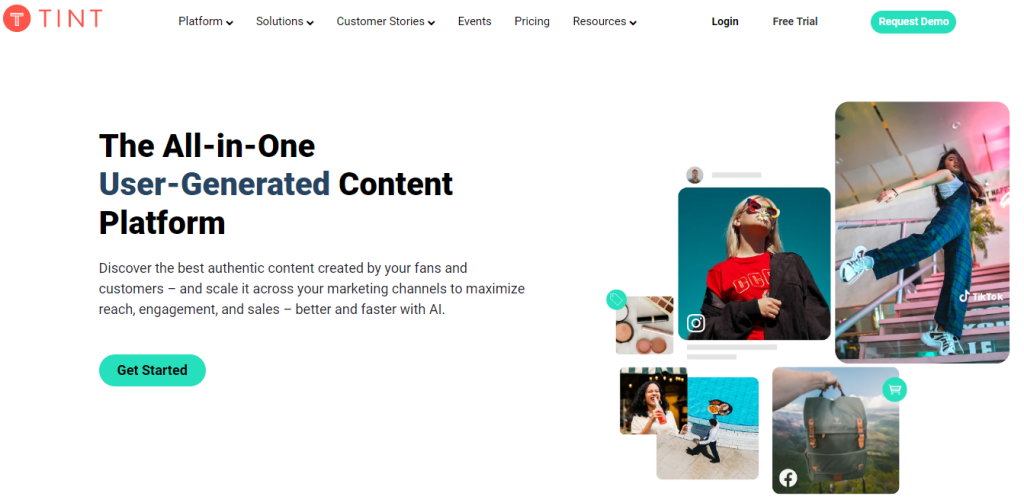
Tint is a social media aggregation and display platform that enables businesses to curate and showcase user-generated content from various social media channels on their website or at events.
With Tint, businesses can display social media feeds, hashtags, and posts in real-time, encouraging user engagement and brand awareness.
Tint offers a range of customization options to fit a brand’s visual identity, making it an excellent choice for businesses looking to showcase social media content in a visually appealing way.
Pros:
- Integrate photos from multiple platforms
- There are a lot of features
Cons:
- Platform breaks down, and has random glitches.
- The UI is complicated to navigate.
Pricing – N/A
7. Emplifi (Pixlee)
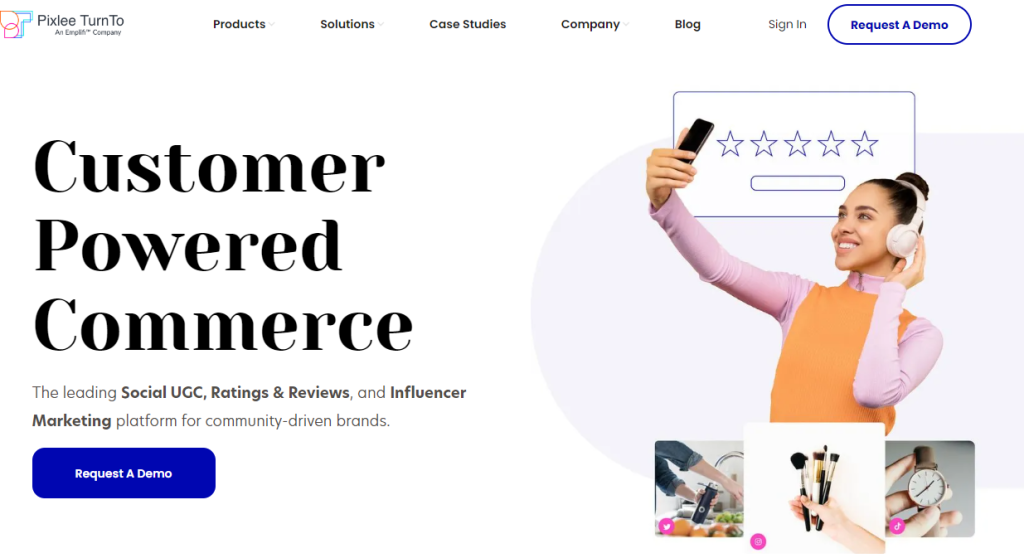
Pixlee is an efficient alternative to Flowbox and a user-generated content platform that enables businesses to collect, curate, and publish user-generated content across social media channels.
With Pixlee, businesses can incentivize customers to create and share branded content, driving engagement and sales. The platform offers a range of tools to help businesses discover influencers, track analytics, and measure the ROI of social media campaigns.
Pixlee is an incredible alternative to Flowbox and can enable brands to achieve their marketing goals more efficiently.
Pros:
- Social Media Management
- Live stream shopping
Cons:
- Inefficient analytics data
- Poor customer service
Pricing – N/A
8. Insense
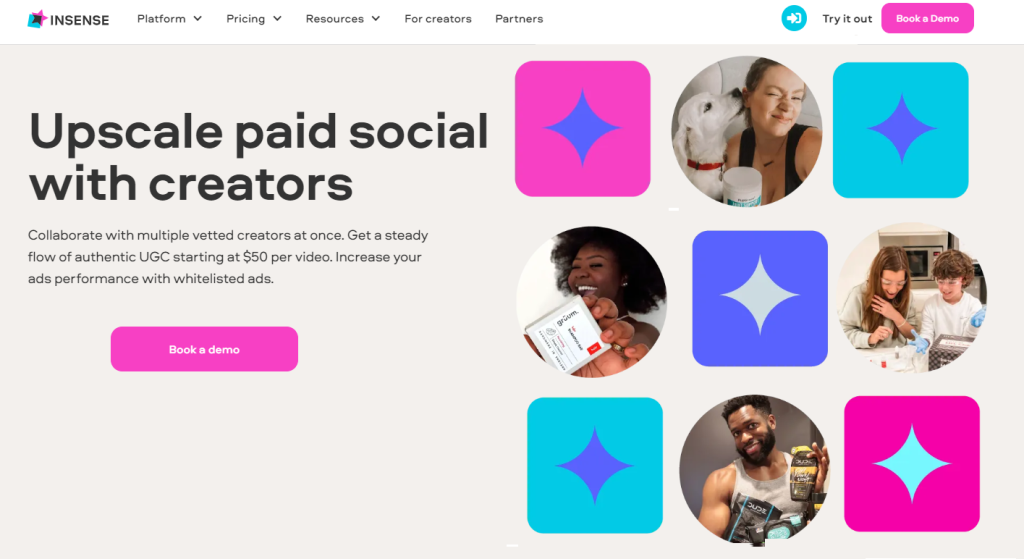
Insense is an influencer marketing platform that connects brands with influencers and content creators across social media channels.
This tool enables businesses to create influencer campaigns, manage collaborations, and track the performance of social media campaigns. The platform offers robust analytics to help businesses identify high-performing influencers and optimize their influencer marketing strategy.
Insense is an excellent choice for businesses looking to include influencer marketing in their marketing strategy.
Pros:
- App speed is good
- Properly Navigation
Cons:
- The process of finding creators is very slow.
- Poor customer support
Pricing – $550
Must Read: Top Insense Alternatives in 2025
9. Tagboard
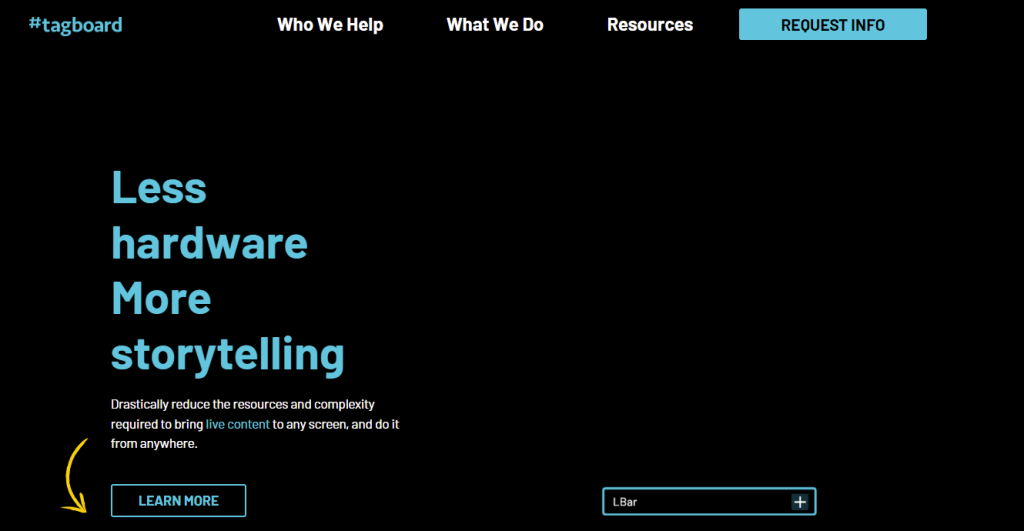
Tagboard, a powerful contender in the social media flow space. Just like Flowbox, Tagboard helps you curate and display user-generated content (UGC) from various channels in a visually appealing format.
Whether you want to showcase customer testimonials, live event feeds, or audience engagement on your website or at a physical location, Tagboard offers a compelling alternative to Flowbox.
Pros:
- The UX (user experience) is quite easy to understand
Cons:
- The photos don’t remain on the site forever
- Very bad customer support
Pricing – N/A
10. Okendo
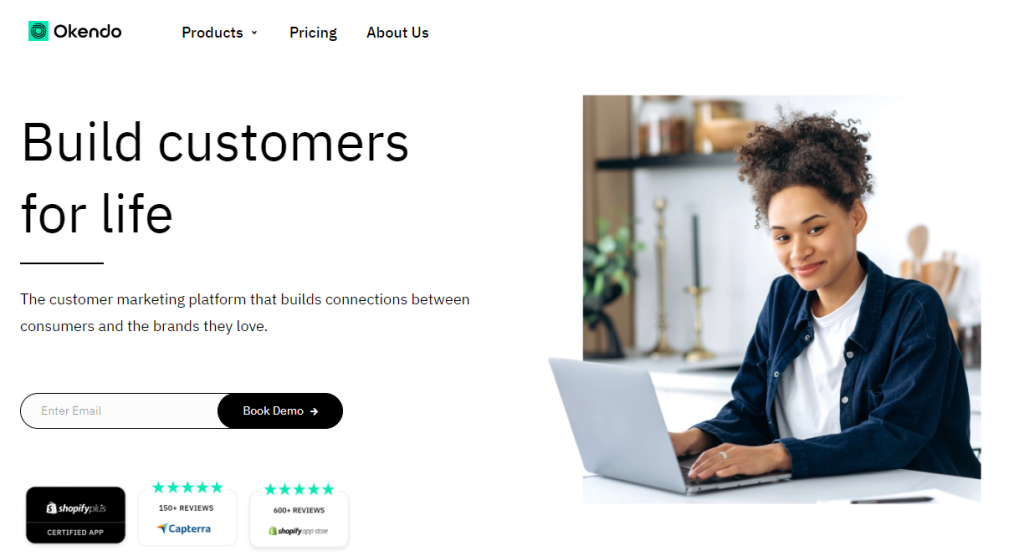
Okendo is a customer review platform that enables businesses to collect and showcase customer reviews across various marketing channels.
With Okendo, businesses can automate customer feedback collection, generate product ratings, and display customer reviews on their website and social media channels.
The platform offers a range of customization options to fit a brand’s visual identity, making it an excellent choice for businesses looking to build trust and credibility with their customers.
Pros:
- The platform is straightforward to navigate
- Ability to audit reviews
Cons:
- Offers only review collection & management
- Review search abilities are bad
Pricing – $119
Final Words
To sum up, while Flowbox is a popular tool that many brands use, it’s always worth exploring alternative tools to determine which one is best for your brand. Doing so can help you identify the best features, functionalities, and analytics to help you achieve your social media marketing goals.
Social media has become an integral part of a brand’s marketing strategy, and social media management platforms like Flowbox and its alternatives have made it easier for businesses to manage their social media presence.
Ultimately, by exploring different social media management tools, businesses can identify the best features, functionalities, and analytics to help them achieve their social media marketing goals.
